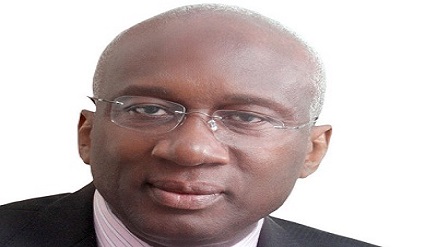Telecom
Broadband Council Pushes for Smart States, 50% 3G-Coverage

Broadband Council has made case for the increased 3G coverage to 50 percent of the Nigerian population by 2015.
This was one of the outcomes of the council’s 4th meeting in Lagos recently.
The meeting coincided with the first year anniversary of the approval of the Broadband Plan by President Goodluck Ebele Jonathan.
In reviewing progress against the broadband plan so far, Council highlighted that it had been slower than anticipated, though Broadband penetration has gone up from 6 to 6.8% since implementation commenced.
All members agreed that sustained efforts needed to be maintained to increase the penetration rate in accordance with the five year target of the Broadband Plan as full 3G rollout would lead to increased mobile broadband penetration for all.
To support its push for full 3G rollout across the nation, an Access Gap Analysis of the coverage of the country has been completed by the USPF.
The purpose of the Access Gap study by USPF is to ascertain/determine priority for unserved and underserved areas and direct appropriate investments to these areas. This will inform plans for addressing under-served and unserved areas across the country.
The USPF’s soon to be published Access Gap Analysis shows large population clusters of 500,000 and more still requiring coverage.
This significant work by the USPF has given real empirical data to the issue of which areas of the country have connectivity.
The members of the council commended the work of the USPF in this area. This work would feed into prioritised areas for USP funds.
The Council also extensively deliberated on progress made with the Smart States initiative and getting states to reduce or remove ROW charges and other related fees. Five states have so far indicated interest in being Smart States.
They are Gombe, Bayelsa, Ondo, Anambra and Katsina. Lagos and Cross Rivers state are already considered well on their way to being Smart City States. Abuja is also in a great position to be Smart
Mrs Omobola Johnson Chairman of the Council and Honourable Minister of the Ministry of Communication Technology,, said that the Smart states drive to engage governors and relevant authorities at the state and federal level to address the issue of multiple taxations will accelerate the roll out of critical infrastructure across Nigeria.
The Lagos state government had earlier signed an agreement with the Association of Licensed Telecoms Companies (ALTON) to reduce the cost of RoW from 3000 naira to 500 naira per meter, a significant reduction of 85%.
The aim of the Smart States initiative is to ensure that effective measures are adopted to remove arbitrary charges and eradicate multiple taxations across the nation.
Previous research by the Ministry revealed that ROW charges, levies and taxes contributed about 70% to the cost of rolling out infrastructure in several states.
Also, a collaborative agreement between the Ministries of Communication Technology (including the NCC) and Environment (which includes NESREA) has been gazetted and is now in place to help ease bottlenecks concerning base station deployment. An MOU that outlines the roles and responsibilities of each department with respect to base station deployment and approvals of Environmental Impact Assessments necessary for effective service delivery in the telecom sector is now operational.
In addition, the timeline for the processing of Environmental Impact Assessment (EIA) reports will no longer exceed 90 days, another obstacle often highlighted by Operators.
The push by the Council for the release of more spectrum by the NFMC and NCC is yielding positive results. The Nigerian Communications Commission successfully auctioned the 2.3GHz spectrum band to Bitflux Communications in February this year.
The auction is in line with the mandated timeline of the broadband plan. The release of complementary Infraco licenses will follow shortly. NFMC continues to work closely with the NBC and NCC with regards to digital dividends and the release of 2.5GHz and 2.6GHz planned for later this year.
Incumbent occupants of the spectrum have been engaged and a mode of transition is being worked out.
The Council also deliberated on the Cybercrime Bill and work done so far on TV White Space committee.
The Cyber Crime Bill passed through the First Reading in the National Assembly in the first quarter of 2014, and the Bill is awaiting Second Reading in both the Senate and House of Representatives.
The NFMC has approved the piloting of TV whitespace technology in Nigeria and the pilot will commence with 6 companies offering services in unserved and underserved areas. Pilots will be for one year under licensing from NCC.
Purpose of the pilot is to establish the TVWS solution as a viable rural access technology for the Nigerian context.
Recall that the Broadband Council had after its third meeting on the 17th of February launched an awareness campaign that will communicate the transformational benefits of broadband to all Nigerians to encourage its use and adoption and inform where broadband is also accessible in local communities.
The Campaign tagged ‘’Connected Nigeria, Connected Nigerians’’ is on-going and will raise awareness and disseminate information of the benefits of Broadband and how broadband is creating economic and social value for Nigerians.
The Council has also inaugurated a Media Advisory Council to help drive the broadband awareness campaign.
Telecom
Airtel Africa Reports $376m Profit for H1 of 2025

Airtel Africa reported a profit after tax of $376 million for the half year ended September 30, 2025 as compared to $79 million in the corresponding period last fiscal, benefitting from a $90 million gain largely arising from Nigerian naira appreciation during the current quarter (Q2’26) and the Central African franc (CFA) appreciation during the previous quarter (Q1’26).

Revenues at $2,982 million for the reported period saw strong growth as compared to $2,370 million in the six months of the last fiscal, rising 24.5% in constant currency and 25.8% in reported currency.
The company said constant currency revenue growth reflects the consistent execution of its strategy, supported by tariff adjustments in Nigeria and continued strong growth momentum in Francophone Africa.
“Our strategy has been focussed on providing a superior customer experience and the strength of these results is testament to the initiatives that we have been implementing across the business,” Sunil Taldar, chief executive officer of the company said in a statement.
He said the company has been scaling the network to build additional capacity to facilitate the rise in both digital and financial inclusion.
“The increase in smartphone penetration to 46.8% reflects the substantial demand for data services across our markets but also highlights the scale of the opportunity to further develop the digital economy,” Taldar said.
Capex for the period stood at $318 million. “We have increased our capex guidance for FY’26 to between $875m and $900m – from ‘between $725 million and $750 million’.
This reflects our decision to accelerate our ability to capitalise on the significant growth opportunity that is available across the region, as is reflected by these strong H1’26 results,” the company said.
During the period, the company continued investments in network with the rollout of over 2,350 new sites to over 38,300 sites and an expansion of its fibre network by approx. 4,000 kms to over 81,000 kms.
Telecom
Vitel Wireless Launches October 30, Says “Blue is Here”

Vitel Wireless Limited, a GSM second level operator, licensed by the Nigerian Communications Commission (NCC) is set to begin nationwide operations on October 30.

Kenneth Nwabueze, Chairman and CEO of Vitel Wireless
Themed “Blue is Here,” the launch event will unveil E-SIMs, physical SIMs, and smart connectivity solutions for individuals and businesses
With the tagline “Everything Connected,” Vitel aims to redefine communication in Nigeria through innovation, speed, and trust.
In a statement earlier, Vitel Wireless, said it combines reliability with innovation, leveraging cutting-edge technology to deliver seamless connectivity and intelligent solutions across the country.
“The company’s services go beyond communication — they integrate safety, mobility, and smart systems to enhance how individuals, businesses, and communities connect,” the statement reads.
According to Engr Kenneth Nwabueze, executive chairman, Vitel Wireless, at the heart of the telco’s mission is a bold vision to redefine mobile communication through technology that not only connects people but also protects them.
He highlighted the features saying the device is embedded with IoT-driven devices, smart logistics solutions and AI-powered safety analytics.
“Vitel Wireless is more than a telecom brand — it’s a movement toward a smarter, safer, and more connected Nigeria. Our goal is to bridge technology and humanity, using mobile innovation to improve lives, empower businesses, and strengthen national security,” Engr. Nwabueze said.
He stated that the Vitel Wireless team has interconnected with all major Mobile Network Operators (MNOs) in Nigeria, including MTN, Airtel, and Glo, and has a roaming agreement with MTN for nationwide rollout, extending Vitel Wireless coverage as one of the largest networks in Nigeria.
“Vitel Wireless has partnered with NCC and various law enforcement agencies to define and support key regulatory frameworks that now govern the nation’s telecom space in personal and public safety,” he said.
He added that the value added service includes Xphone -free phone calls and low international calling rates, SecureMe -location awareness solution for personal safety, Oga-App -employment enhancement and performance tool, ISEEYOU -AI-based CCTV with real-time alerts, AssetNow -LBS/GPS-based asset tracker, and many more.
“Vitel Wireless’s nationwide rollout signals a new era for the telecom industry — one where connectivity meets intelligence, and technology serves both purpose and people,” Nwabueze added.
Telecom
MTN Nigeria, WWF/NCF, UNDP Nigeria Shortlist 100 Innovators for PachiPanda Challenge

MTN Nigeria Communications Plc, in collaboration with the Worldwide Fund for Nature (WWF) through the Nigerian Conservation Foundation (NCF), and the United Nations Development Programme (UNDP) Nigeria, has announced the shortlist of 100 young Nigerian innovators for the second phase of the 2025 Nigeria PachiPanda Challenge.

The initiative, launched in 2024, is aimed at fostering home-grown solutions to Nigeria’s most pressing environmental challenges, including climate change, pollution, community conservation, and sustainability.
According to a joint statement by the organisers, the top 100 were selected from a pool of 2,169 applications received nationwide. The selection process involved a rigorous multi-stage evaluation conducted by 20 expert assessors, guided by a robust framework to ensure fairness and consistency.
“The shortlisted innovators represent the brightest minds committed to environmental resilience,” the statement read. “Their solutions span high-impact sectors and are designed to address both national and continental environmental issues.”
The PachiPanda programme offers participants access to mentorship, technical workshops, seed funding, and a network of industry experts. The next phase will see a further evaluation to determine the Top 10 finalists, who will be unveiled ahead of a three-day sprint pitch and masterclass event scheduled for November 2025 in Lagos.
During the event, finalists will undergo intensive training to refine their business strategies and enhance their solutions for broader impact. Winners of the Nigeria PachiPanda Challenge will advance to the continental Africa PachiPanda Contest, where they will compete with other national champions.
Nigeria CommunicationsWeek reports that the programme underscores MTN Nigeria’s commitment to eco-entrepreneurship and environmental sustainability, empowering youth-led enterprises to drive green innovation across Africa.

 Telecom2 days ago
Telecom2 days agoUNICEF, GSMA Unite with Partners to Launch Africa Taskforce on Child Online Protection to Safeguard Children in the Digital Age

 Broadcasting2 days ago
Broadcasting2 days agoNCC Calls for Professional Guidelines on Software Use, Support for Copyright Enforcement

 E-Business2 days ago
E-Business2 days agoNOTAP to Crackdown on Unregistered Technologies in Nigeria

 General News2 days ago
General News2 days agoFG to Train One Million Youths under TVET for Entrepreneurship, National Development

 Broadcasting2 days ago
Broadcasting2 days agoMultiChoice to Delist from JSE after Canal+ Takeover

 E-Financial2 days ago
E-Financial2 days agoSEC Puts Nigeria’s Cryptocurrency Transactions in One Year @ Over $50Bn

 E-Financial2 days ago
E-Financial2 days agoPolaris Bank restates support for SMEs, commissions EveryDay Supermarket in Yenagoa

 E-Financial1 day ago
E-Financial1 day agoLotus Bank Drags 45 Banks to Court over Alleged ₦1.1Bn Fraudulent Withdrawals


























